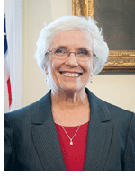Jehlen Helps Secure Funding to Remove Water Chestnuts
 The Mystic River is an unrivaled escape in our otherwise urban setting, enjoyed by runners, dog-walkers, bird-watchers, photographers, boaters and many more. Any day, looking out on the river you will find canoes, kayaks, speedboats, or a family walking along the river’s edge.
The Mystic River is an unrivaled escape in our otherwise urban setting, enjoyed by runners, dog-walkers, bird-watchers, photographers, boaters and many more. Any day, looking out on the river you will find canoes, kayaks, speedboats, or a family walking along the river’s edge.
Recently, however, looking out on the river you will also see a sheet of green covering the surface and making the river much less appealing. The Mystic River has been blanketed by an invasive species known as water chestnut, which now covers acres of the water’s surface. The water chestnut population has grown by more than 3000% over the past decade and, if unaddressed, the problem will only continue to grow exponentially. The plants limit access to boat launches and docks and hinder navigability for boaters, kayakers, and rowers. The chestnuts also reduce light penetration and absorb oxygen from the water, endangering native fish and other submerged species, and reducing the value of the river as a natural habitat.
Fortunately, residents and organizations have been stepping up to save the river from the spread of the plant. Since 2010, members of the community, local environmental organizations, clubs and neighbors have come out in full force for multiple hand-pulling events through the Mystic River Watershed Association’s (MyRWA) Water Chestnut Removal Project. This summer alone, over 349 volunteers removed over 3100 baskets of water chestnut plants in just 9 events. All the hard work of these volunteers has been done with little to no funding and the looming knowledge that their efforts alone could not completely solve the problem.
Alongside these efforts by dedicated residents, I have been working with my colleagues in the legislature and multiple agencies to remedy the problem. To bring the issue to light, I met with the Committee on Ways & Means and filed an amendment to the Senate budget to provide funding to eradicate the invasive species plaguing the river. We also hosted informational briefings that received notable attention and support.
And now for the good news! All of these efforts have paid off and we have secured the necessary funding to get the eradication process started. The Department of Conservation and Recreation (DCR) and MyRWA began large-scale mechanical harvesting operation of water chestnut plants in the Mystic River last month, targeting 43 infested acres in Medford and Somerville. The combined determination of residents, organizations, elected officials and state agencies have successfully generated one crucial element in the clean-up of these important urban river areas.
I’d like to thank DCR and MyRWA for prioritizing this problem and focusing their efforts on eradicating the species that threatens our waterways and reviving the river. I’m grateful to my colleagues in the legislature for their support of this important initiative throughout the budget process, ensuring funding for the removal of the invasive species. Not only will this clean up benefit our environment overall, but it will also increase recreational opportunities for the community to enjoy.
Looking out on the Mystic River now, we will still see the canoes, the kayaks, boats and onlookers along the river’s edge, but we will also appreciate a much cleaner river with greater recreational possibility and a healthier ecosystem for the underwater habitat that often goes unseen.
State Senator Patricia Jehlen, Second Middlesex District
Patricia.jehlen@masenate.gov
617-722-1578